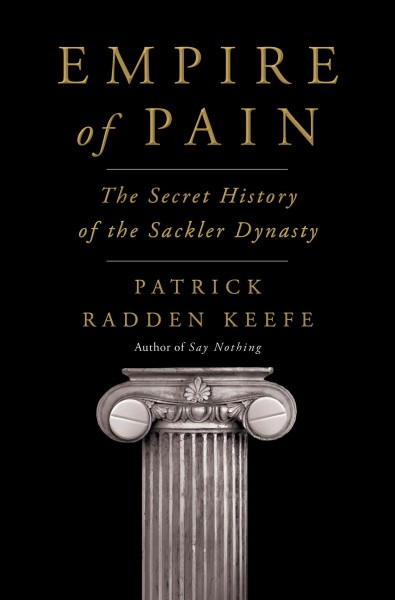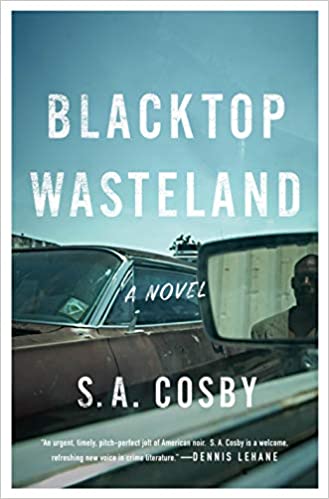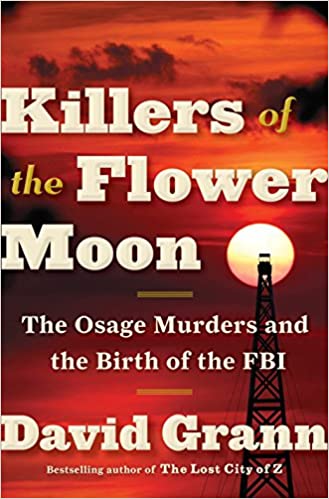I knew writing a book would take a while, but what I didn’t realize was how much time it would take to flog Sourdough Culture.
I’ve been reading (and listening), but not had time to post. Here are some recent reads.
Empire of Pain by Patrick Radden Keefe *** (of 4)

Keefe’s takes on American addictions to painkillers by focusing on the history of the Sackler family, patent holders for oxycontin. The Sacklers made billions of dollars, maximizing publicity for their charitable donations but insisting upon total anonymity in their role in promoting oxycontin. They kept their distance even after they recognized that Oxy was not only seriously addictive, but also a gateway to heroin, fentanyl, and an epidemic of overdoses and deaths. Keefe makes a convincing case that the Sacklers knew more and earlier than they would ever admit and thereby points an accusing finger at a family drunk on money. In his justified rage at a system that knowingly pushed addictive, deadly drugs on innocent Americans, Keefe’s gives short shrift to all the other Big Pharma companies that seized profits while they were there to be had. And what does it mean that one-third of Americans suffer from long-term, untreated, chronic pain?
Blacktop Wasteland by S.A. Crosby *** (of 4)

Beauregard “Bug” Montage loves his kids and his car, not necessarily in that order. As a Black auto mechanic in rural Virginia, business isn’t great, especially when a fancy shop, run by whites, opens up in town. Bills pile up and Beau’s temptation to return to his life as the best get away driver in the criminal history of the South overtakes him. He needs the money for his children, his ornery mom’s senior living center, and to pay the utilities, so when the chance to pull in decent cash in exchange for one perfect heist is laid at his feet, Beau feels he has no choice. The story appears to be about crime and some of the best car chase scenes ever committed to writing, but one layer down it is about the importance of being a decent Black dad struggling against nationwide systemic racism.
The Pull of the Stars by Emma Donaghue *** (of 4)

Like a play, nearly all the action takes place in a single room of a maternity ward in an Irish hospital during WWI. A pandemic of influenza has flooded the ward with hacking patients suffering from poverty, malnutrition, and bearing too many children. Outside the hospital a European war is raging, women are fighting for the right to vote, shell-shocked soldiers are limping home suffering from PTSD, orphans are maligned by Irish nuns, and Irish Troubles with the British persist. Inside the ward are some of the most graphic descriptions of childbirth set to print. Alas, outside-the-ward politics remain peripheral, meaning the birthing ward dramas could really be set in any location at any time.
Interior Chinatown by Charles Yu *** (of 4)

It’s a clever idea, clever enough to win a National Book Award. Charles Yu describes life in an anonymous Chinatown as a series of scenes cast for movies or TV. Chinese characters appear as the handful of stereotypes to which most Americans ascribe to most Asians: inscrutable, indistinguishable, accented managers in Chinese restaurants, wizened old men and women in tiny apartments, and so forth. Occasionally other characters appear in their stereotypical TV personae, notably a tough Black detective with a deep voice and an unrealistically blonde, attractive female with sensitive eyes and a kind voice. The point being that what we see on screens flattens all of us, especially Asians, according to Yu, to caricatures without depth and meaning. The point is taken, however, early enough in the book, that the absence of a coherent plot turns it into a show whose season might not be worth completing.
Killers of the Flower Moon by David Grann *** (of 4)

In the 1920s, the Osage Indians of Oklahoma were among the wealthiest people in the U.S. An accident of history meant the displaced Osage were forced to settle atop one of the biggest oil fields in North America. The prospect of unfathomable wealth held by Native Americans was intolerable to white Americans. The Osage attracted greedy scoundrels like flies to rancid meat. To the advantage of the flies were American laws that forbade Indians from managing their own money without approval from white guardians and an American justice system that was so savagely anti-Indian that murderers and robbers of every stripe held a free-for-all at the expense of innocent Osage. It is one more horrible piece of history we privileged Americans were never taught.